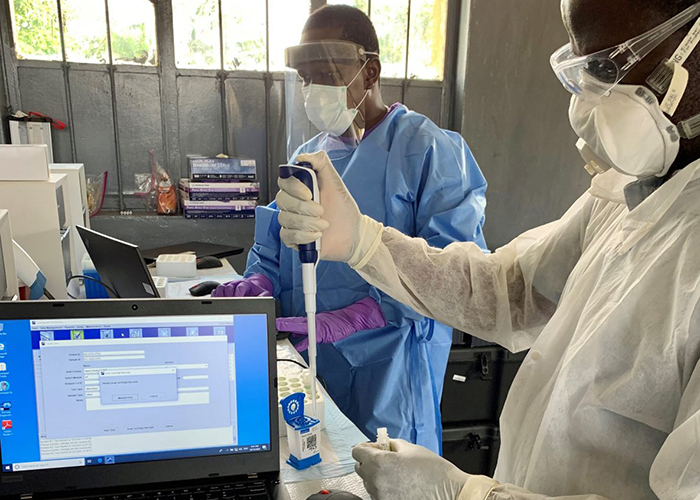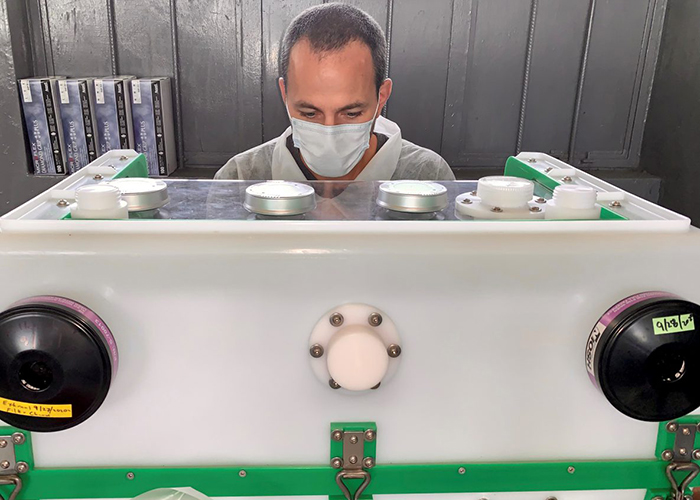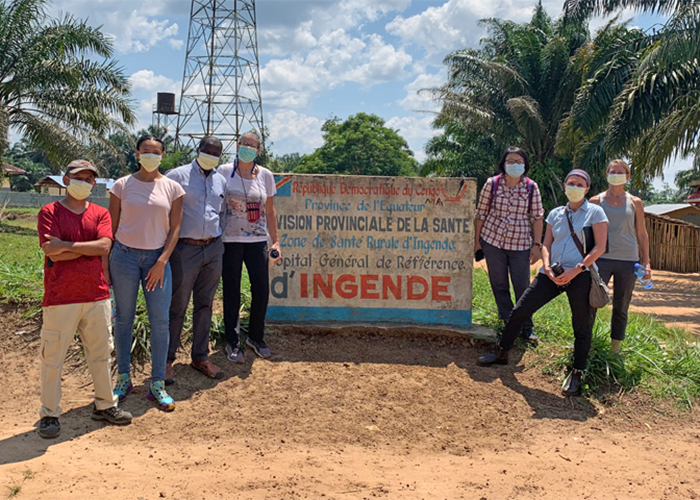Ebola outbreak in the Democratic Republic of the Congo declared over
The 11th Ebola outbreak in the Democratic Republic of the Congo (DRC) was declared over by the DRC Ministry Health (MOH) and WHO on Nov 18. This milestone means 42 days, or two incubation periods of the virus, passed with no new cases since the last survivor tested negative.
Laboratory sequencing revealed that cases in this outbreak, in the Equateur Province, were linked to a spillover event, or a new introduction of the virus into the community, as well as the outbreak that took place in the region in 2018.
CDC deployed staff to DRC to provide technical assistance in epidemiology, lab, communication, infection prevention and control, vaccine, and social and behavioral science.
A notable accomplishment of this response was the establishment of a mobile laboratory. At the end of August 2020, a CDC team traveled to DRC with approximately 4,000 pounds of equipment. By the first week of September, CDC, the DRC MOH and the Institut National pour la Recherche Biomédicale (INRB), had rendered the mobile diagnostic lab operational in Ingende, a town two hours by speed boat from Mbandaka, where response efforts were based.
The mobile lab was established in Ingende because it is located on the banks of a tributary of the Congo River (the second longest river in Africa), providing easy access in and out. Additionally, Alliance for International Medical Action’s (ALIMA) isolation center and Médecins sans Frontières’ (MSF) Ebola treatment center (ETC) were there, as well as the Ingende Regional Hospital.
The Ingende lab is staffed by CDC team members and experienced INRB laboratorians. In addition to testing samples for Ebola, the laboratory can also run tests to help monitor the health of patients undergoing treatment in the ETC. As of November 12, 2020, over 1,300 samples had been tested.
The end of three back-to-back outbreaks in one country
The end of the 2020 Equateur Province outbreak also ends years of ongoing Ebola responses in in DRC. Since early 2018, CDC has worked with the DRC MOH, WHO, and international partners to contain and bring to end three outbreaks of Ebola. Each of the three outbreaks presented different challenges, and innovative approaches to respond. The response to the outbreak in eastern DRC experienced challenges due to internal armed conflict that were not encountered in the two outbreaks in Equateur Province. The eastern DRC outbreak recorded 3,481 cases, making it the second largest Ebola outbreak in history.


